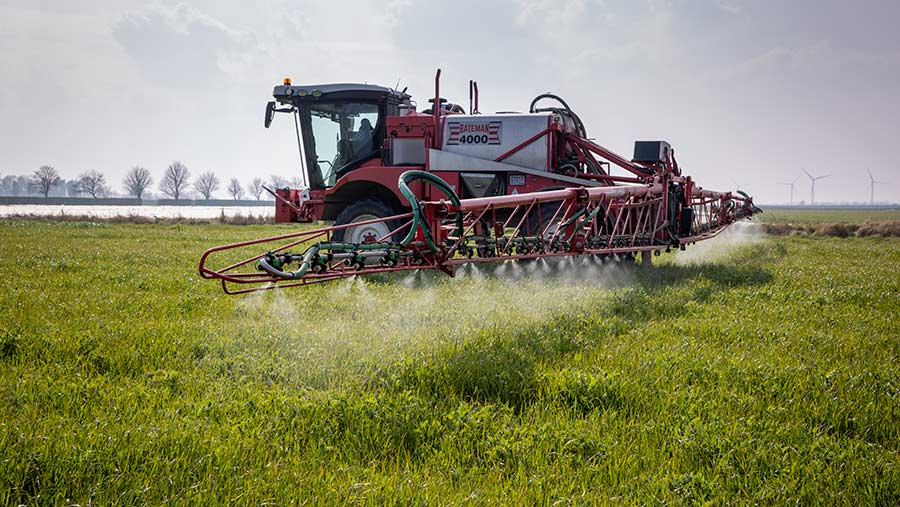EU fails to agree on glyphosate 10-year licence renewal
 © GNP
© GNP Farming unions have raised serious concerns after EU member states failed to reach agreement on an EU Commission proposal to renew the licence for glyphosate for 10 years.
EU member states voted on whether to renew the herbicide’s licence on Friday 13 October through the Standing Committee on Plant, Animal, Food and Feed (Scopaff).
But the vote failed to reach a qualified majority of 15 countries, representing at least 65% of the bloc’s population, which is needed to either support or reject the proposal. France, Germany and the Netherlands were among six countries that abstained.
See also: Efsa glyphosate review finds ‘no critical areas of concern’
A second vote will be held in the first half of November and if it too fails to reach a clear decision, the decision will be left with the commission.
A decision on the future of glyphosate is needed before its EU licence expires on 15 December.
The commission’s recommendation to extend glyphosate’s EU licence to 2033 follows a three-year risk assessment and peer review which was carried out by the European Food Safety Authority (Efsa) and the European Chemicals Agency.
‘No health risk’ – Efsa
Efsa found that there were “no critical areas of concern” around glyphosate and the world’s most widely used herbicide did not pose “unacceptable” risks to human health.
A spokesman for Bayer, the manufacturer, said: “Bayer remains hopeful that at the next step in the approval process, sufficient additional member states will support the renewal of the approval of glyphosate.
“Glyphosate remains a critical tool for farmers to establish crops and manage weeds sustainably and economically while the positive conclusions of Efsa regarding safety confirm it can be safely used.”
Commenting on Friday’s vote, the NFU pointed out that Efsa’s study was based on 11,000 pages of evidence and completed by independent regulatory experts.
NFU vice-president David Exwood said: “Glyphosate has long been one of those essential products to control weeds before planting and is vital due to the popularity of a regenerative, no-till or minimum-till approach – farm practices shown to be good for climate change mitigation, as well as decreasing soil erosion.
“Britain’s farmers and growers will continue to use glyphosate as long as it is safe and legal to do so to ensure environmental sustainability and a secure supply of high-quality, affordable food.”
The Irish Farmers Association described the failure of member states to reach a qualified majority as “very concerning for EU agriculture”.
However, anti-pesticides lobby group Pesticides Action Network Europe welcomed the decision.
A spokesman said: “This is an important signal. It goes right to the concerns of a majority of Europeans about the impact of pesticides on health and environment.”
Coffey pledge
Since Brexit, Great Britain is free to make independent decisions on pesticide approvals, while Northern Ireland must comply with EU law under the Northern Ireland Protocol.
Defra secretary Therese Coffey has promised British farmers will have continued access to glyphosate once the UK’s post-Brexit pesticide regime is developed, describing it as “critical for regenerative farming”.
But if Labour wins power at the next general election, it could choose to follow EU pesticide legislation more closely.

